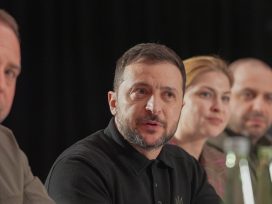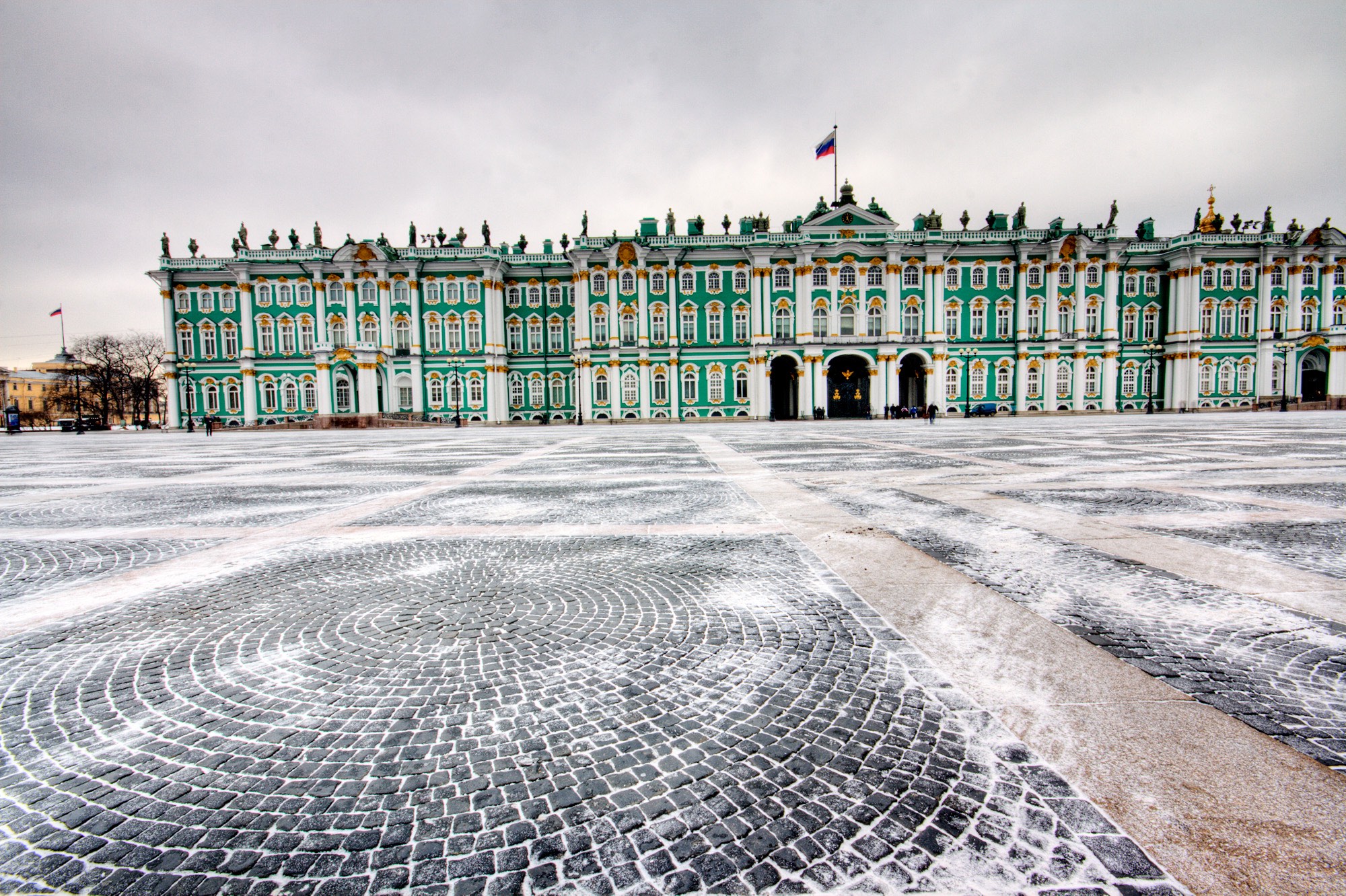
The ‘Trump–Putin deal’ again places Ukrainians in a subaltern role. The leaked contract with its fantasy $500 billion ‘payback’ has been compared to Versailles, but the US betrayal recalls nothing so much as Molotov–Ribbentrop.
A century after the Russian Revolution began there, Francisco de Borjas Lasheras reflects on a visit to Saint Petersburg – what is changing, and what stays the same?
Ruslana shakes her glass and gazes at the band playing just a few yards from us. She finishes her drink before saying: ‘I cannot go to jail. I have two children.’ We talk about the state of play in Russia and the options for citizens who want change, such as her. She is an attractive woman, and several men seek to grab her attention by clumsily placing their drinks nearby or interrupting us on some vague pretext. Ruslana works for an NGO in Saint Petersburg and is drawn by Europe, but she says the EU seems very bureaucratic. She asks me if it has a future.
The nightspots in these parts are ideal for talking about politics. Ruslana’s hopes are invested in the media-savvy opposition leader and blogger Alexei Navalny, whose popularity was boosted by his revelations of corruption against the prime minister, Dmitri Medvedev. But systematic restrictions and foul play deployed against opposition groups, together with the extent of state control within the media, neutralizes any real political competition. To some, however, Navalny is the first real politician Russia has had since Yeltsin, even though he is obliged to play the populist card.
Outside the bar the Fontanka River canals are frozen over. Municipal cleaners walk across the ice, removing the rubbish before stopping for a smoke by the rail. The streets are covered by a slender layer of dirty snow and ice. It was on a night such as this that I met the likeable Andrey, an independent journalist and activist. He has been arrested at several of the protests over recent years, but bearing the brunt of Putinism does not appear to sour his friendly nature and good spirits as he talks openly about the Russia of today. Over dinner he turns down a brand of wine from Crimea to express his opposition to the territory’s annexation by Russia. On getting into his car he turns on the dashcam video recorder, typical in Russian vehicles to supply evidence in case of an accident and false allegations, including by the police. I feel as if I am in ‘Doroga’ (Road), a Russian road movie made with material from these cameras in which accidents, assaults and all kinds of other experiences transpire in an atmosphere that is surreal and tragicomic at the same time. The camera accentuates the idea of Big Brother.
It is mid-afternoon and leaden rain falls over the city. After traversing a labyrinth of scruffy stairways, ill-lit corridors and backyards, Andrey and I are seated in a space rather like a classroom. This place brings together organisations, lawyers and experts in judicial reform, human rights and other representatives of civil society from one of the most unruly parts of the country from the state’s point of view: Saint Petersburg. At times the meeting takes on a somewhat melancholic air. This impression becomes more acute when one realises the age of some of those present: men and women who were young in the turbulent 90s and who now pass verdict on that period. ‘We weren’t ready for that wave of democracy’, some argue. This is a point I have heard uttered by the Ukrainian-born, Belarusian writer Svetlana Alexievich.
Back then, under Yeltsin, Russia began to dismantle the USSR from within while simultaneously experimenting with democracy and applying drastic measures to transition to a market economy under the guidance of reformists such as Gennady Burbulis and Yegor Gaidar. Convinced that there was no alternative, figures who had been raised on Marx now embraced shock therapy capitalism with the same Messianic fervour. In October 1991 Yeltsin told the Duma that this was ‘Russia’s way to democracy and not empire’. Following the shortages under Gorbachev’s perestroika, the social impact was dramatic as poverty and inequality increased. But the deep empire – its security structures and power clans – survived the collapse and adapted to the new times. At the meeting, a tall man with long white hair and a denim jacket says that ‘our rulers continued the old ways of keeping power amongst themselves…’, and adds, with a sarcastic smile, ‘until the KGB took control’. This the KGB to which the current governor of Saint Petersburg, Georgy Poltavchenko, and the president himself belonged.
Several of these NGOs are threatened by the Foreign Agents Law, passed after the protests against the government, in 2011 and 2012. It states that organisations that receive donations or assistance from outside Russia and participate in ‘political activities’ must be specifically registered as such. Such measures, along with the criminalisation of slander, are designed to stigmatise human rights organisations above all others, funded, as they often are, by the EU, some of its member states and western foundations. They have to choose between an isolated outcast status with the attendant financial problems, adopting an ‘apolitical’ stance, dissolving, or becoming semi-clandestine. Meanwhile, little by little and just as it did in the past, the regime is creating a replica of itself within civil society by supporting sympathetic organisations.
This authoritarianism flourishes amid political apathy, influenced by decades of totalitarianism. Many people are reluctant to display ‘political feelings’, we are told at the Ombudsman’s Office. Doing so in public is increasingly troublesome and can cost a person dear. According to this institution, certain kinds of demonstration, like small protests against the war on Ukraine, are prohibited on a systematic basis, with organisers risking fines and other sanctions. Some are more equal than others, it seems, because these restrictions are rarely applied to movements close to the regime. This, I am told, is true of the National Liberation Movement, a Russian nationalist organization, which organises pickets and counter-protests which have the tendency to turn violent against events held by groups such as Memorial, an organisation devoted to investigating the USSR’s past and which has been declared a ‘foreign agent’. In present-day Russia, there is an asphyxiating atmosphere surrounding any expressions of ‘unpatriotic’ dissent in the public realm and on social media. During my stay, at the urging of political forces that emphasise ‘traditional family values’, the Duma passed, and the president signed into law, a partial decriminalisation of domestic violence, with the effect that only those cases that lead to a woman being hospitalised will have criminal consequences. This is probably another law heading for the Strasbourg court of human rights, which recently found Russian legislation on ‘sexual propaganda’ to be discriminatory against homosexuals. But the niceties of the Council of Europe count for little for this Kremlin, which has suspended its payments to the organisation. The writer Peter Pomerantsev said to me that if Stalin was three-quarters repression and one-quarter propaganda, then Putin is the opposite, apart from the occasional reminder that it is better to tread carefully. That proportion, I replied and some of my Russian friends seem to agree, could vary.
I bid farewell to Andrey, who says ‘do skoroi vstrechi!’ (see you soon) with a smile. Months later he would be arrested again, in Saint Petersburg, along with some 800 others, including many minors, at protests mobilised by Navalny. I walk along the towpaths and come to a building with greyish walls and large windows. Once a palace belonging to Russian nobility, today it is a cultural centre bursting with cafés; a redoubt for Saint Petersburg’s hipsters, I find out. Inside, spaces full of graffiti and urban art jostle alongside vintage salons with high stuccoed ceilings, chandeliers, dusty shelves, candles everywhere you look, and trees festooned with decorations from the recent Orthodox Christmas. In one of those rooms two young, pretty women try on dresses with the price tag still on. While one parades like a model up and down in front of the mirror, the other takes her photo. A few yards away another young artist grips her camera and snaps incessantly at a coffee cup on top of a cupboard, oblivious to my questions. I keep coming across scenes such as these all over the building; individuals completely absorbed by the immensity of their own bubble, apparently indifferent to the world outside and the people who fleetingly pass them by. It is a somewhat unreal atmosphere, in stark contrast to the details I had been listening to just hours earlier, about torture involving the stretching of limbs.

The Winter Palace, Saint Petersburg. Source: Flickr
Dusk descends. I arrive at a deserted park of sad elms and vacant benches. Crows are searching for food amidst the snow. Two old ladies, wrapped up from top to toe, stop to give them some bread, only to speed their pace as a freezing gust of wind threatens to put us off balance. I walk by a Soviet monument with the five-pointed star on top to commemorate the siege of Leningrad, and, for some reason, my feet end up taking me to the period before the one overseen by the star, placing me before the Winter Palace. The light from the streetlights pierces a slight fog covering the square and the Alexander Column. Guides flit around dressed up in period garb. I look at the green-and-white façade of the famous building, with its columns, arches and emblems of grandeur. The doors are once again adorned with the symbols of imperial Russia and the Romanovs, banned in the USSR and possibly symptomatic of the times and of a circle which is closing.
In October 1917, after sacking the palace, the Bolsheviks discovered the tsar’s wine cellar and its thousands of bottles. Weeks of wild drunkenness and absolute anarchy ensued. The new leaders tried pouring the rest of the alcohol into the drains that led to the river, but people would come to sip at it. When the booze finally ran out, they say that the city woke up with the worst hangover in history. We remain under the spell of that historical hangover.
Published 27 December 2017
Original in Spanish
Translated by
James Badcock
First published by Letras Libres 194 (November 2017)
Contributed by Letras Libres © Francisco de Borja Lasheras / Letras Libres / Eurozine
PDF/PRINTSubscribe to know what’s worth thinking about.

The ‘Trump–Putin deal’ again places Ukrainians in a subaltern role. The leaked contract with its fantasy $500 billion ‘payback’ has been compared to Versailles, but the US betrayal recalls nothing so much as Molotov–Ribbentrop.

Ukraine faces its greatest diplomatic challenge yet, as the Trump administration succumbs to disinformation and blames them for the Russian aggression. How can they navigate the storm?